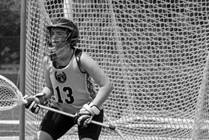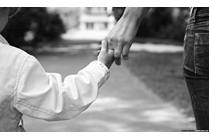Search Results
Viewing: 471-480 of 1460 | All

Condition
Snapping Hip Syndrome
Snapping hip syndrome is a condition in which you may sense something catching or hear a popping sound or click in your hip when your hip joint moves. If you put your hand over the hip area, you might feel or even see the snap happen when walking, running, bending or getting up from a sitting position.
Article
Allergy Skin Testing
If your child is being seen for possible allergies, asthma, frequent infections or stuffy nose, allergy skin testing may be recommended. Testing can help find out what "allergen" causes the symptoms. It could be something breathed in, touched, or eaten.
Article
Bone Scan: Nuclear Medicine
A bone scan is a test that is done to look for problems in the bones. A tiny amount of radioactive material is injected into your child's vein and goes into the blood. After about 2 to 3 hours, it collects in the bones.
Article
Birth Control: Hormonal IUD
The hormonal intrauterine device (IUD) is a small, T-shaped plastic device with strings attached. The hormonal IUD works mainly by thickening the cervical mucus to keep the sperm from joining with an egg.
Article
Circumcision: Newborn with a Plastibell
How to prepare for your newborn son's Circumcision with a plastibell.
Failure to Thrive In Infants
Failure to Thrive (FTT) describes an infant or child who does not gain weight at the expected rate. The two kinds of FTT are organic and non-organic. Medical problems such as diarrhea or vomiting may be the cause of organic FTT.

Blog
It's World Mental Health Day: Help Stop the Stigma
A man stands in front of a group of people and asks, “Who here has mental health?” Only a handful raise their hands. “We all have mental health,” he says. More than 1 in 5 adults have experienced a mental disorder within the past year.

Condition
Headaches in Children
Headaches are common in children and teens. There are many types of headaches. Each type has their own treatment.
Article
Important Facts to Know when Taking Opioids
Learn how to keep your child safe when they are taking or around opioids.
Article
Aspirin
This Helping Hand™ about aspirin explains what it's used for, how and when to take it, and how to stay safe taking it.
